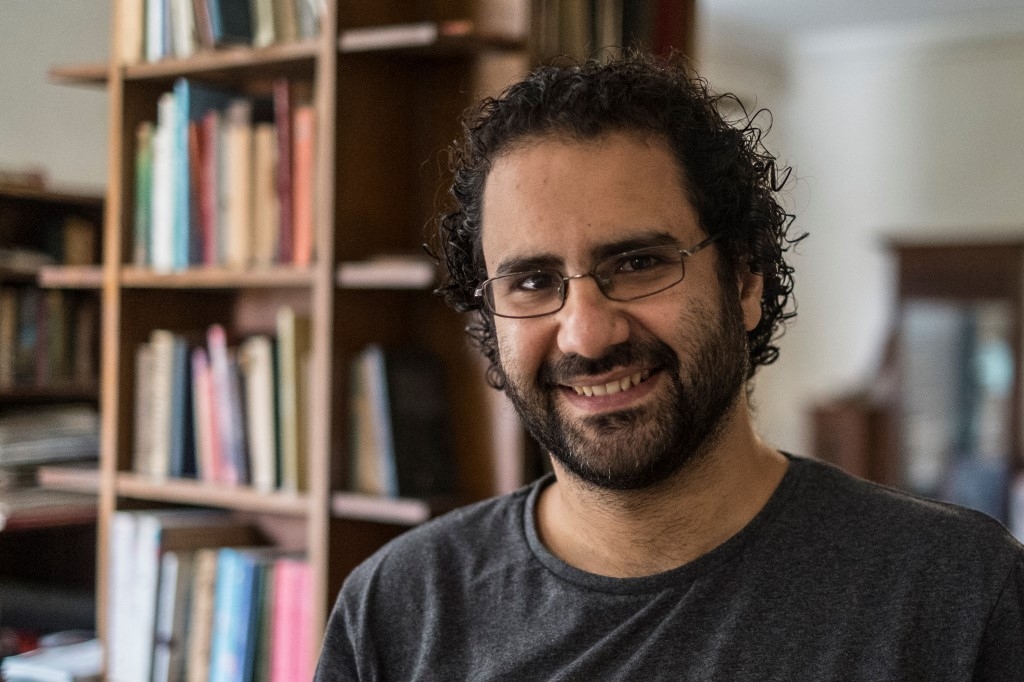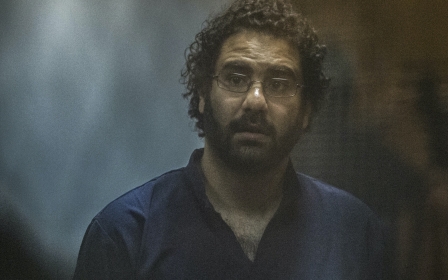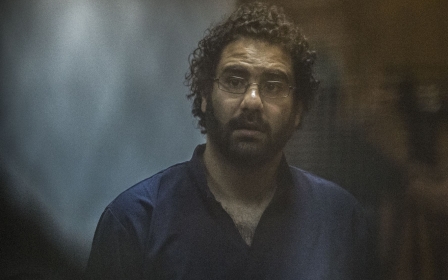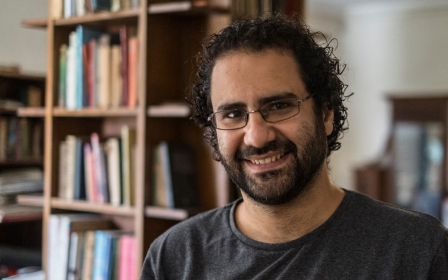Egypt: Alaa Abd el-Fattah 'lost lots of weight' after 72 days of hunger strike

Egyptian-British political prisoner Alaa Abd el-Fattah has lost a lot of his weight following 72 days of hunger strike, his family said on Sunday.
His sister Mona Seif, who visited him for 20 minutes in Wadi el-Natrun prison on Monday, wrote on Facebook that the prison administration had refused to send the family his latest letter, in which he wrote that Mahatma Gandhi inspired his strike.
'I don't know whether we will be able to rescue my brother or not. All that I could do is ensure that if my brother died, the political price will be high'
- Sanaa Seif, sister of Alaa Abd el-Fattah
Sanaa Seif, his other sister, said in a separate post that Abd el-Fattah has lost any hope of being released and has told his family to "stop thinking" that he would be set free, believing that he would die a "martyr" inside the prison.
"I don't know whether we will be able to rescue my brother or not. All that I could do is ensure that if my brother died, the political price will be high for that," Sanaa wrote.
New MEE newsletter: Jerusalem Dispatch
Sign up to get the latest insights and analysis on Israel-Palestine, alongside Turkey Unpacked and other MEE newsletters
The pro-democracy activist, who was an icon of the 2011 Egyptian revolution, started his strike on 2 April in protest against the Egyptian authorities' refusal to allow UK officials to meet with him and provide his basic rights.
His family has been increasingly worried about his deteriorating condition.
Abd el-Fattah was granted UK citizenship in April through his mother, who is also a British citizen.
His family said last month that the activist is willing to revoke his Egyptian citizenship if that would lead to his release.
In recent years, a handful of dual nationals among the estimated 65,000 political prisoners in Egypt have been freed by President Abdel Fatteh el-Sisi's government after relinquishing their Egyptian citizenship.
Last week, a government-sponsored delegation from the National Council for Human Rights (NCHR) said it visited Abd el-Fattah. It claimed that his medical report “indicates that his health is stable and vital signs are normal. He has received all the nutritional supplements allocated to him by the prison, in addition to receiving food and drinks provided by his family almost on a weekly basis.
“There are no reports of his hunger strike by the prison’s administration.”
However, Abd el-Fattah’s mother Laila Soueif said the NCHR did not meet with her son and instead chose to believe claims made by the prison’s administration, which refuses to recognise the hunger strike.
Soueif told Egyptian news outlet Darb that as far as she knows, Abd el-Fattah has not been medically examined since 18 May.
“As for whether or not Alaa is still on his hunger strike, the best response is an excerpt from one of his letters that his strike continues despite it not being documented in a [prison’s] record.”
Middle East Eye delivers independent and unrivalled coverage and analysis of the Middle East, North Africa and beyond. To learn more about republishing this content and the associated fees, please fill out this form. More about MEE can be found here.




